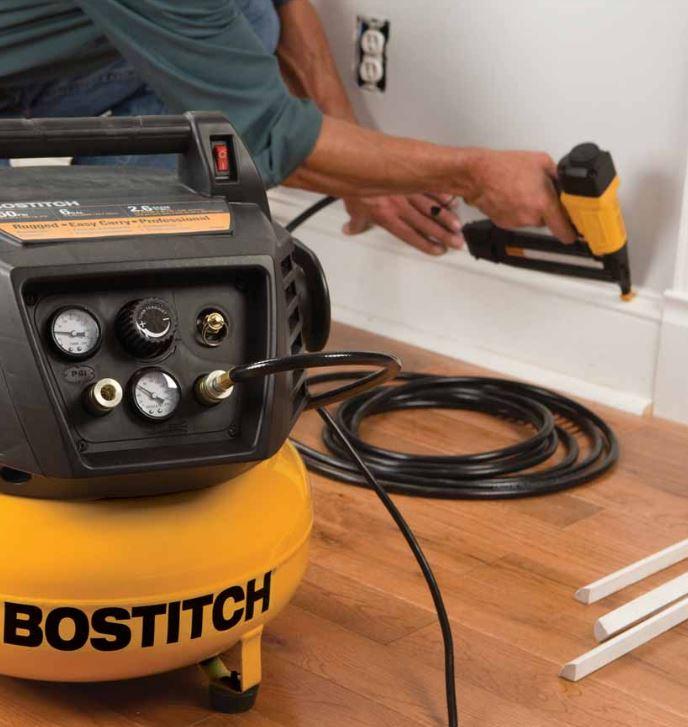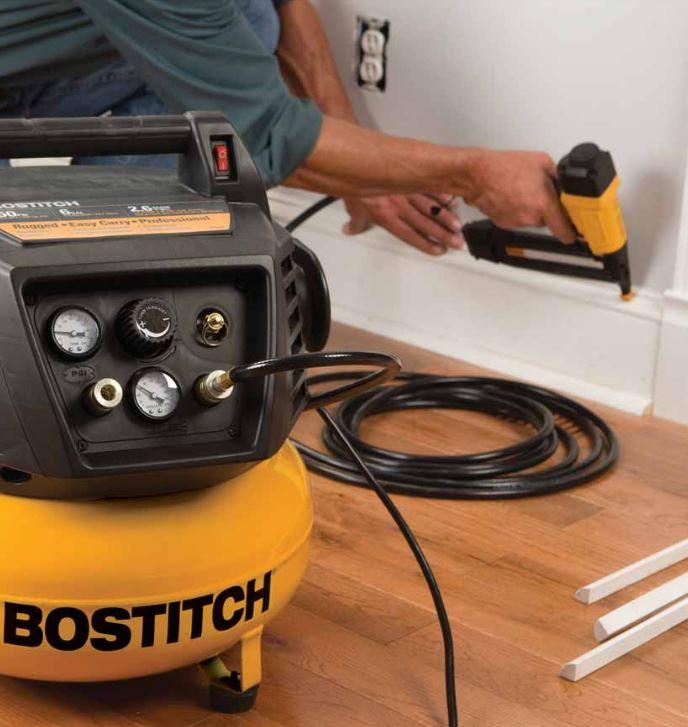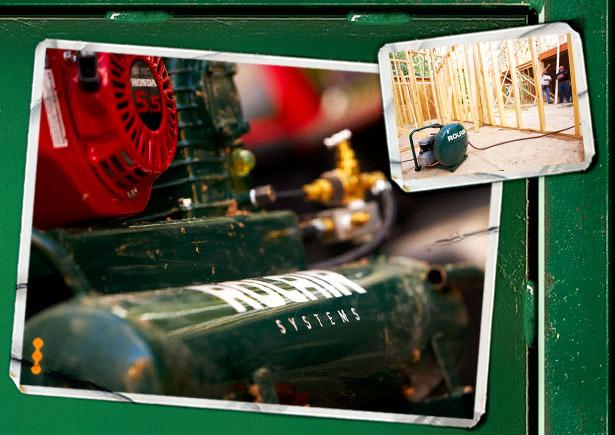You May Also Like
How To Buy The Right Air Compressor
September 22, 2015

Have you found yourself asking, "How much air compressor do I really need?" If so, you've come to the right spot. Many are fooled into buying more - or less - air compressor than their tool requires. An easy solution, learn how to buy the right air compressor, by visiting Nail Gun Depot's, Nail Gun Network.

The following are points for consideration as you start your research:
- Portability: We put portability at the top of our list, because despite performance and technical specs, if you can't take your compressor where it needs to go, it's useless. Think about the types of projects you are looking to do. Will there be room for a larger unit, or is space going to be limited? Will you have to carry the compressor up and down stairs, or will it always stay at ground level? Will you be using the compressor in a fixed work space, or will it move from job to job? A hand-carry air compressor will prove beneficial if you will be moving it up and down stairs, or if you have limited space to work with. Most DIYers will find that a hand-carry compressor will offer plenty of power for their finish nailer or stapler. These compressors are also handy for basic projects around the garage, such as inflating a tire or pumping up a basketball. Wheelbarrow compressors offer a significant increase in power, and are a better choice for heavy-duty use, but sacrifice some of the portability a hand-carry air compressor offers. Fixed compressors are large and powerful, but are not easily moved, and are not ideal outside a workshop or manufacturing facility.
- Power & Performance: To make sure your compressor is powerful enough to handle the pneumatic tools you plan to hook up to it, check the specs on your tools to see how much air power they require. Most finish and trim nailers, staplers and the like, will require a lower Standard Cubic Feed Per Minute (SCFM) rating, while larger framing nailers and construction staplers typically need a higher SCFM rating to run. If you are planning to run multiple tools at the same time, you'll need a compressor that's designed to handle the additional load. Outside of providing power to your tools, you'll also need to decide whether you want an electric, or gas-powered air compressor. Most hand-carry compressors are only available as electric, but for larger wheelbarrow units and some fixed units, gasoline power is an option. Consider using a gas compressor if you find yourself frequently on the job without an electrical outlet available. Some gas-powered compressors will also offer increased power over their electric counterpart.
- Pump & Tank Type: Most compressor shoppers will go straight for the motor output - without thinking about two other crucial components - the pump and the tank. The tank size - measured in gallons - determines how frequently the motor must run to keep air in reserve. Almost as crucial as the motor, the pump is responsible for moving air through the compressor. A single-stage compressor pumps air at the same output pressure, while two-stage compressors have multiple cylinders that continually compress air to provide improved tank filling capability. Be sure to note whether your compressor pump is oil-free, or if it requires regular oiling to keep moving parts lubricated. Larger compressors typically require oil lubrication as regular maintenance.
- Reliability: The last point on our checklist, make sure the compressor you are buying has been built by a contractor-grade manufacturer. The "house-brand" compressor manufacturers come with an appealing price, but are likely to fall apart sooner than expected. In fact, most don't even come with the out-of-box quality that can be found in compressors from brands such as, RolAir, Senco, Bostitch, J-Air and similar. Buyer beware, make sure the compressor you decide on is designed to sustain several years of hard use.
All things considered, how much air compressor DO YOU really need? The solution ultimately lies in the type of projects you work on, the pneumatic tools you are using, and the flexibility of your typical job site. Despite the size or design of the compressor you choose, keep long-term reliability in mind. Choosing a slightly more expensive, contractor-grade compressor, might pay for itself in the long run.

Now, you won't have to worry about "blowing" your money on the next air compressor you purchase.
~The Nail Gun Depot Team


